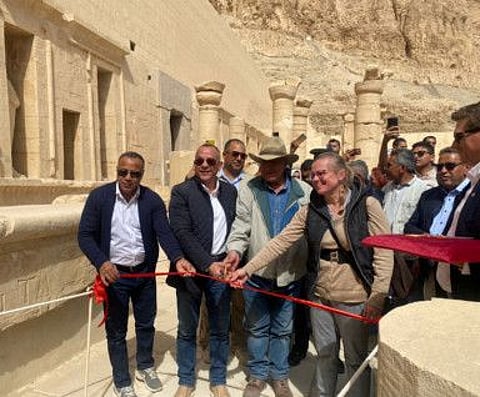Egypt opens 4,000-year-old tomb on Luxor’s West Bank, oldest open to public
Meru’s rock-hewn tomb was restored by the Polish Centre for Mediterranean Archaeology

CAIRO: Egypt has restored, documented and opened to tourists the Middle Kingdom tomb of Meru, the oldest site accessible to the public on Luxor’s West Bank, home to some of its most spectacular Pharaonic monuments including the Valley of the Kings.
Meru was a high-ranking official at the court of the 11th Dynasty King Mentuhotep II, who reigned until 2004BC and who, like Meru, was buried at the necropolis of North Asasif, the ministry said in a statement on Thursday.
Meru’s rock-hewn tomb was restored by the Polish Centre for Mediterranean Archaeology at the University of Warsaw and Egypt’s Supreme Council of Antiquities.
“This is the first site from such an early period in Western Thebes to be made accessible to visitors,” the ministry statement quoted Fathi Yassin, General Director of Antiquities in Upper Egypt, as saying.
The tomb, which faced the procession avenue to Mentuhotep II’s temple, contains a corridor leading to an offering chapel with a niche for a statue of the deceased. A burial shaft descends to a burial chamber with a sarcophagus.
“This is the only decorated room of the tomb, with an unusual decoration of painting on lime plaster,” Yassin said.
Meru’s tomb had been known since at least the mid-19th century, according to the Polish Egyptian archaeological mission. Italian conservators cleaned some of the wall paintings in 1996.
Some of the Middle Kingdom’s most prominent officials were buried at North Asasif, the statement said.
Sign up for the Daily Briefing
Get the latest news and updates straight to your inbox


